What is Armoured Cable? Understanding Its Types, Benefits, and Applications
 Armoured cable is a vital component in modern electrical systems, renowned for its robustness and reliability. This type of cable is designed to protect the conductors within it from mechanical damage, moisture, and other environmental factors, making it an ideal choice for various installations. Understanding the different types of armoured cable, as well as their specific benefits and applications, is crucial for professionals and enthusiasts in the electrical industry.
Armoured cable is a vital component in modern electrical systems, renowned for its robustness and reliability. This type of cable is designed to protect the conductors within it from mechanical damage, moisture, and other environmental factors, making it an ideal choice for various installations. Understanding the different types of armoured cable, as well as their specific benefits and applications, is crucial for professionals and enthusiasts in the electrical industry.
As technology continues to evolve, the demand for secure and efficient electrical solutions has prompted an exploration into the diverse functions of armoured cable. From construction sites to industrial environments, its versatility allows for secure installations in challenging conditions. This overview will delve into the characteristics of armoured cable, discussing its types, such as steel wire armoured (SWA) and aluminium wire armoured (AWA), and highlighting why these cables are preferred in both residential and commercial settings. By examining its advantages, including enhanced protection and longevity, readers will gain a comprehensive understanding of why armoured cable is a cornerstone of reliable electrical infrastructure.
Understanding Armoured Cable: Definition and Composition
 Armoured cable is a type of electrical cable designed to provide enhanced protection and durability, primarily used in environments where mechanical damage, moisture, or extreme temperatures are prevalent. The construction typically involves one or more insulated conductors encased in an additional layer of metallic armor, usually made from steel or aluminum. This robust structure not only guards against physical impacts but also provides a degree of electromagnetic interference shielding, making armoured cables ideal for industrial and outdoor applications.
Armoured cable is a type of electrical cable designed to provide enhanced protection and durability, primarily used in environments where mechanical damage, moisture, or extreme temperatures are prevalent. The construction typically involves one or more insulated conductors encased in an additional layer of metallic armor, usually made from steel or aluminum. This robust structure not only guards against physical impacts but also provides a degree of electromagnetic interference shielding, making armoured cables ideal for industrial and outdoor applications.
According to a report from the International Cable Industry Council, the global market for armoured cables is expected to grow at a compound annual growth rate (CAGR) of 6.5% from 2021 to 2028, driven by the increasing demand for reliable power and data transmission in sectors such as construction, marine, and renewable energy. Different types of armoured cables, such as steel wire armoured (SWA) and aluminium wire armoured (AWA), cater to specific needs, with SWA often preferred for its strength in high-stress environments. In the electrical standards set by the International Electrotechnical Commission (IEC), armoured cables must meet rigorous performance and safety parameters, ensuring they can withstand harsh operational conditions while maintaining electrical integrity.
Types of Armoured Cable: A Comprehensive Overview of Core Variants
Armoured cables are essential components in electrical installations, providing not only safety but also ensuring reliable performance under varying conditions. These cables are typically constructed with layers of protective materials that make them resistant to physical damage, moisture, and electromagnetic interference.
Understanding the different types of armoured cables is crucial for selecting the right one for specific applications.
There are several common core variants of armoured cables, including SWA (Steel Wire Armoured), AWA (Aluminium Wire Armoured), and FWA (Fiberglass Wire Armoured). SWA cables are widely used in industrial settings due to their strength and resistance to mechanical stress. AWA cables, on the other hand, offer a lightweight alternative while maintaining good protection against environmental factors. FWA cables are specially designed for situations requiring additional flexibility, making them ideal for areas where cables need to be moved or bent frequently.
Tips: When choosing armoured cables, consider the specific environmental conditions they will be exposed to. For outdoor installations, opt for cables with higher moisture resistance. Additionally, always consult manufacturer guidelines to ensure compatibility with your installation requirements.
Key Benefits of Using Armoured Cable in Various Industries
Armoured cable is designed to withstand harsh environments and intense conditions, making it a preferred choice across various industries. One key benefit of using armoured cable is its robust protection against mechanical damage. The steel or aluminum layering shields the internal conductors, ensuring durability in construction sites, industrial plants, and outdoor installations where physical impacts are likely. This strength allows for a longer lifespan compared to traditional cabling.
Another significant advantage of armoured cable is its ability to resist environmental factors such as moisture, chemicals, and extreme temperatures. This resistance is crucial in sectors like oil and gas, where cables often operate in corrosive or volatile environments. Additionally, armoured cables enhance safety by reducing the risk of electrical faults, thus promoting reliable power transmission. Industries like telecommunications also benefit from armoured cables, as they provide a secure conduit for data transmission in challenging conditions, ensuring uninterrupted service and protection for sensitive information.
Key Benefits of Using Armoured Cable in Various Industries
Statistical Insights: Market Growth and Demand for Armoured Cable
The market for armoured cables has seen significant growth in recent years, driven by increasing demand across various sectors such as construction, telecommunications, and energy. According to recent statistics, the global armoured cable market is projected to expand at a compound annual growth rate (CAGR) of over 6% from 2023 to 2030. This surge can be attributed to the growing emphasis on infrastructure development and the mounting need for reliable and durable wiring solutions that can withstand harsh environmental conditions.
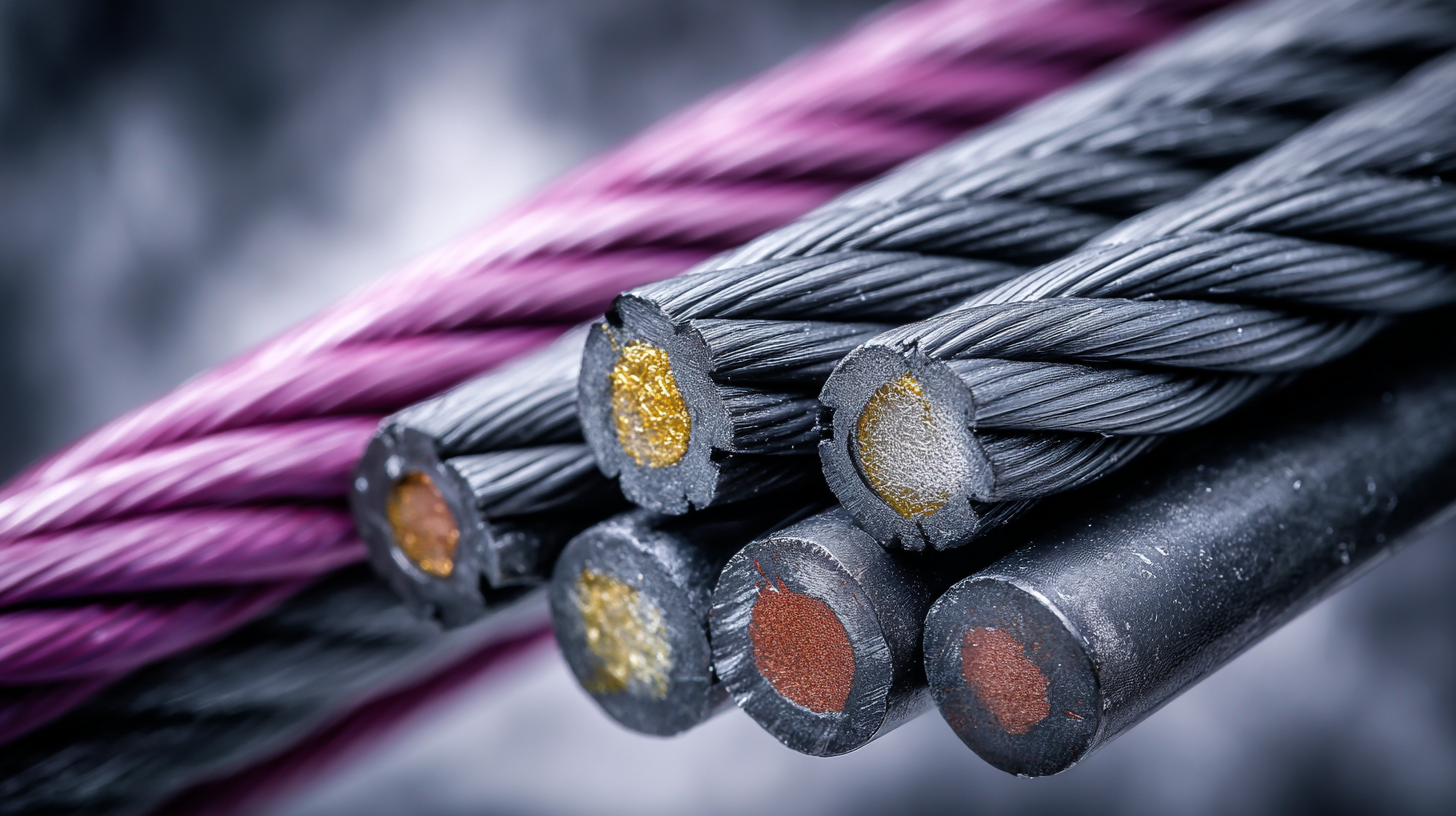
Additionally, the rise in renewable energy projects and the expansion of smart grid technologies have further fueled the demand for armoured cables. Industries are increasingly adopting these robust cables to ensure the safety and efficiency of power transmission and distribution. The versatility of armoured cables, which can be used both indoors and outdoors, enhances their market appeal.
The statistics indicate a diverse application range, covering everything from residential buildings to industrial facilities, thereby reinforcing the essential role of armoured cables in modern electrical systems.
Common Applications of Armoured Cable in Construction and Electrical Systems
Armoured cables are pivotal in modern construction and electrical systems, providing enhanced protection and durability. They consist of a robust outer layer, often made of steel or aluminum, which safeguards the inner conductors against mechanical damage, moisture, chemical exposure, and electrical interference. This construction makes them ideal for high-stress environments, such as industrial settings, where safety and reliability are paramount.
Common applications of armoured cable include powering heavy machinery, lighting systems, and security installations in both commercial and residential builds. Their robust nature ensures they can withstand harsh conditions, making them suitable for underground installations and outdoor use. Furthermore, with the U.S. wires and cables market projected to experience significant growth, industries increasingly recognize the importance of using armoured cables to enhance safety and operational efficiency in electrical systems. As construction projects expand and advance technologically, the demand for reliable wiring solutions like armoured cables will continue to rise.
Related Posts
-
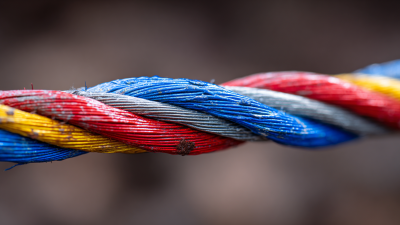
Understanding the Importance of Electric Cable Wire in Modern Technology
-
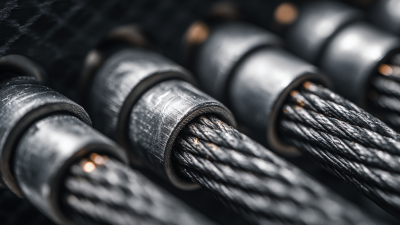
Exploring the Essential Role of Power Wires in Modern Electrical Systems
-
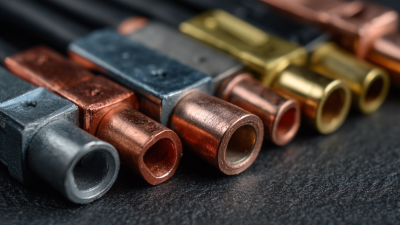
Maximizing Safety and Efficiency: The Essential Guide to Choosing Electrical Wire Connectors in 2023
-
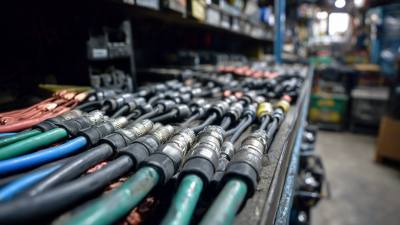
Essential Automotive Cable Maintenance Tips for a Smooth Ride
-
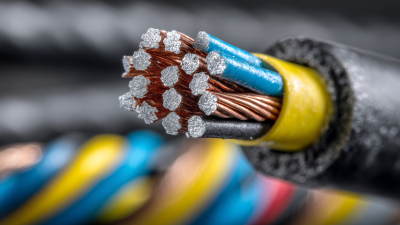
Understanding the Essential Role of Wire and Cable in Modern Technology Systems
-
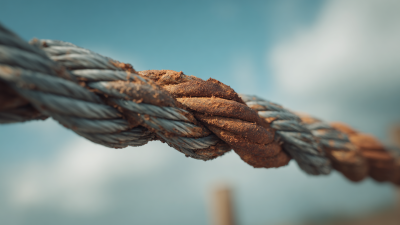
Exploring the Role of Cable Suppliers in Sustainable Energy Solutions
